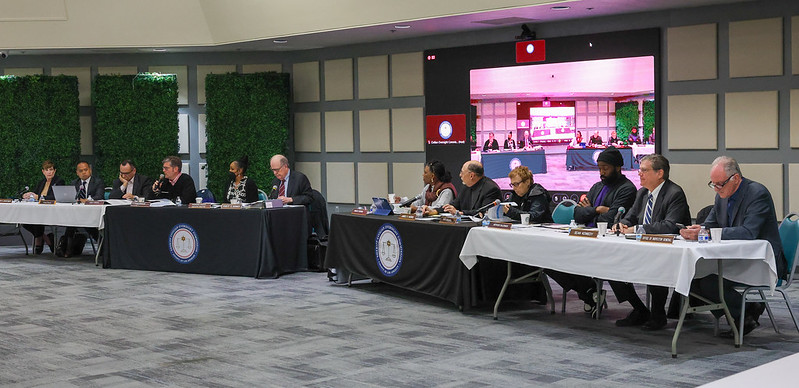The Los Angeles County Sheriff Civilian Oversight Commission (COC) is urging a California Court of Appeal to dismiss criminal charges against a former District Attorney (DA) advisor accused of illegally accessing the Sheriff’s Department’s (LASD) confidential records on deputy misconduct to potentially share with prosecutors.
The Commission filed an amicus curiae brief on February 17, 2025, after its members unanimously voted to do so in a special meeting of the Commission last week. With this “friend of the court” brief, the Commission asserted Diana Teran’s “good-faith efforts” to fulfill the DA’s constitutionally mandated disclosure of exculpatory information should be “lauded, not criminalized.”
The Commission added that the LASD, with the blessing of County Counsel, is using the Teran prosecution as an excuse not to share information with the Commission, such as death review reports of in-custody deaths in the County jail and force incident reports relating to the use of lethal and potentially excessive force. The Commission stressed that this is negatively impacting its ability to provide the County with effective oversight of the LASD. In its amicus brief, the Commission said the LASD should not be allowed to “use this misguided prosecution to escape meaningful civilian oversight.”
The Board of Supervisors created the Commission in 2016 to promote transparency and accountability at LASD, and to improve relations between the LASD and the community, and to advance constitutional policing. In 2020, County voters overwhelmingly passed Measure R to grant the Commission independent authority to investigate and subpoena witnesses and documents.
However, the LASD, relying on the advice of County Counsel, has recently thwarted the Commission’s efforts to access LASD’s confidential information on alleged deputy misconduct and other departmental policies and practices by citing the Teran case. Other County agencies, such as the Office of Inspector General, have also become reticent to share confidential information with the Commission out of fear of being prosecuted.
“Teran’s indictment chills voter-mandated civilian oversight of the Sheriff’s Department,” Robert Bonner, Chair of the Commission, said. “The Sheriff’s Department’s refusal to release confidential documents based on professed fears of prosecution by the Attorney General dramatically undermines our ability to carry out our mission.” He said it is imperative that the Commission have access to confidential information, such as use of force reports, death reports, and internal investigation reports, including body-worn cameras and third-party videos.
Chair Bonner noted the Commission has not been able to review the LASD’s documents about internal investigations of deputy gangs, deputy-involved shootings, beatings, false statements, and the filing of false reports to cover up deputy misconduct. He said, “Los Angeles County residents deserve better than to be stonewalled while our Commission is pursuing reforms of the Sheriff’s Department’s policies and procedures that would help build a more professionalized Sheriff’s Department with enhanced public trust and less liability to the County.”
Teran served as a constitutional policing advisor for the LASD under then-Sheriff Jim McDonnell before joining the DA’s Office to help carry out its constitutional duty under U.S. Supreme Court case Brady v. Maryland. Under Brady, prosecutors have a duty to disclose exculpatory evidence that could be used to impeach the credibility of prosecution witnesses, including law enforcement witnesses.
The California Department of Justice, led by the Attorney General, filed charges against Teran after the LASD, under then-Sheriff Alex Villanueva’s now defunct Public Corruption Unit, accused her of downloading confidential information from its personnel file system in 2021 while trying to identify deputies to add to the DA’s “Brady List.” Maintained by law enforcement agencies and prosecutor offices, the Brady List contains names and details of law enforcement officers who have sustained incidents of untruthfulness, criminal convictions, and other issues raising questions about their credibility.
Teran was initially charged with 11 felonies related to hacking; however, only six charges remain. The rest were either dropped without explanation by State prosecutors or tossed out by a Superior Court judge.
Teran was scheduled to go on trial in Superior Court in January, but a California Court of Appeal stepped in as a result of a petition by Teran’s counsel to block her prosecution. A hearing has been scheduled in April to determine whether the case against Teran should continue.




